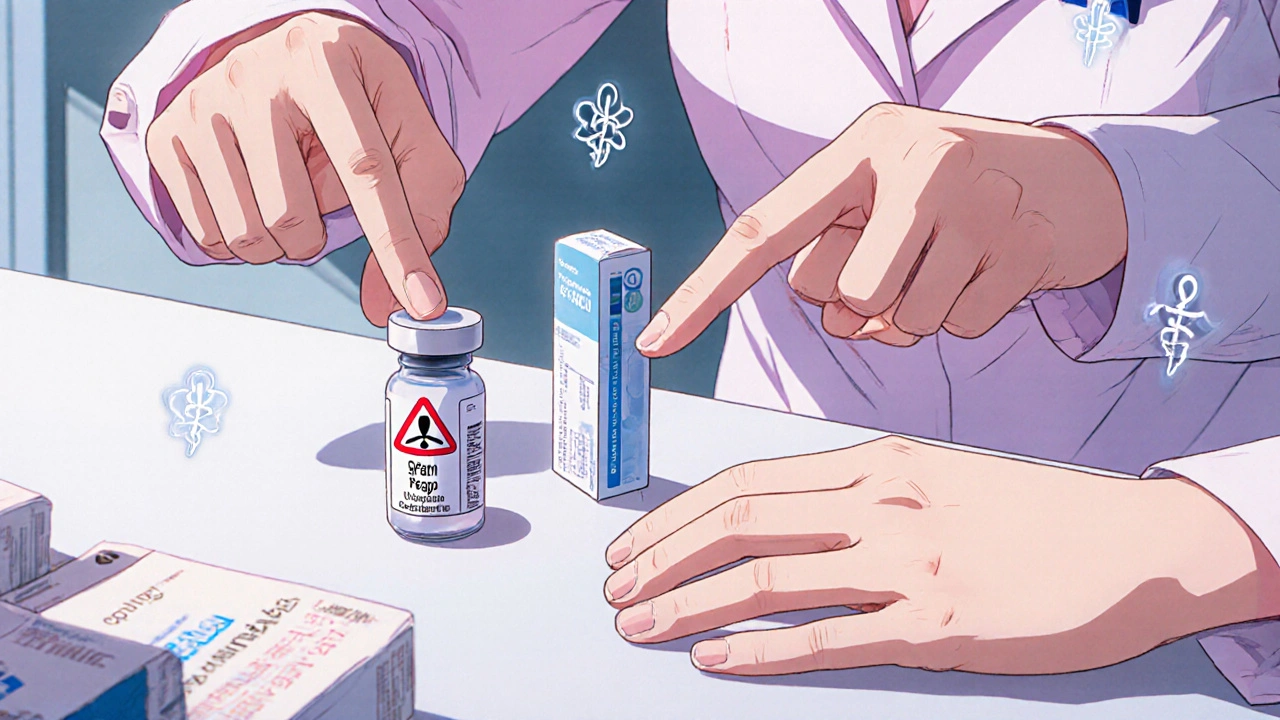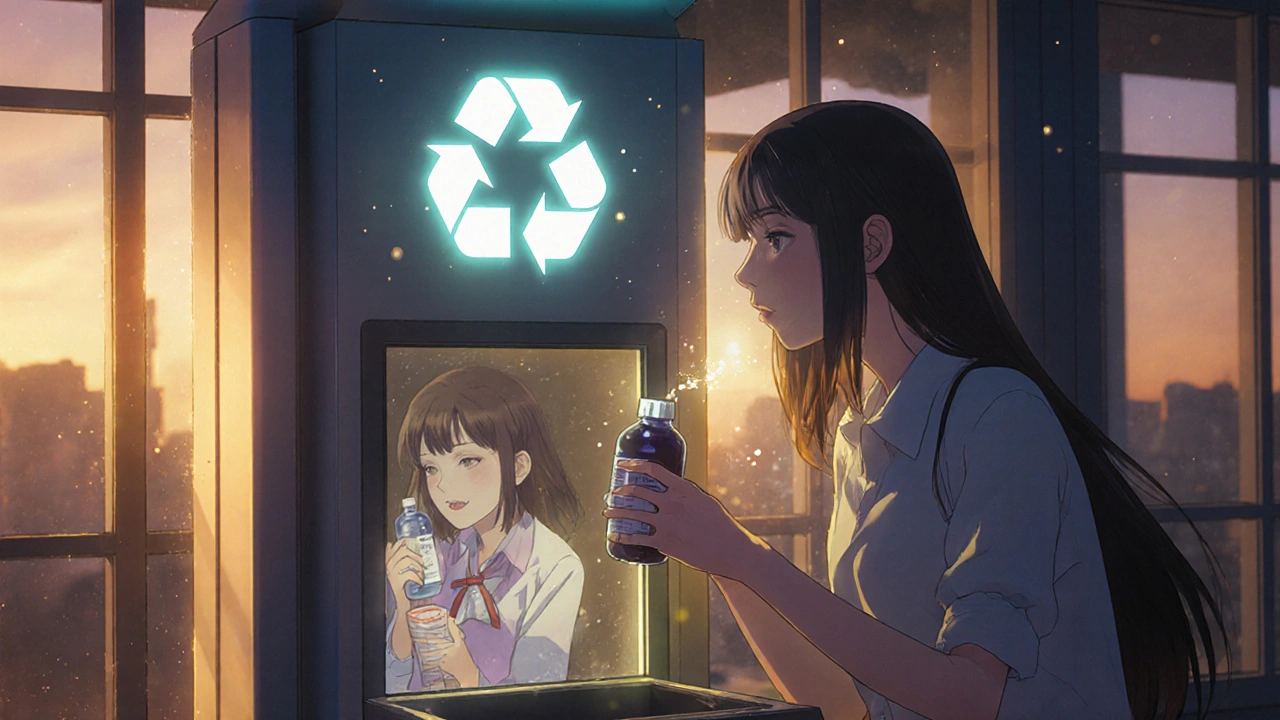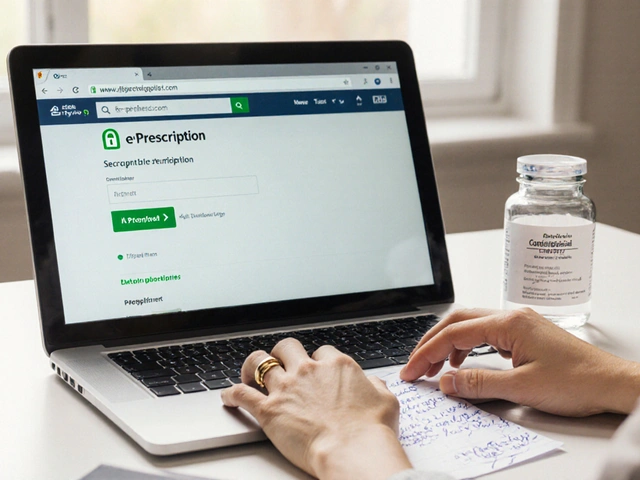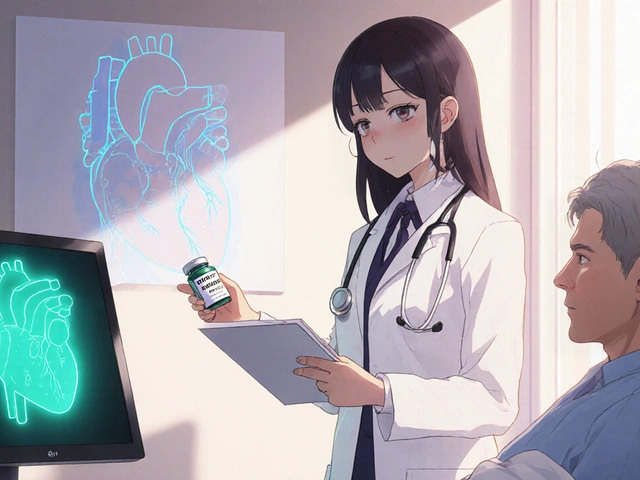
Most people have been there: you reach for your medicine cabinet for pain relief, only to find the bottle says it expired six months ago. You’re not alone. About 76% of Americans have used at least one expired medication, according to a 2022 Consumer Reports survey. But here’s the real question: is it safe? And more importantly-how do you talk to your pharmacist about it without sounding careless or panicked?
Most Expired Drugs Don’t Turn Toxic-But They Can Stop Working
The biggest myth about expired medications is that they become poisonous. That’s not true. Most pills, capsules, and tablets don’t turn dangerous after their expiration date. Instead, they slowly lose strength. A 2012 study by the National Institutes of Health found that 88% of military stockpile drugs were still effective one to five years past their labeled expiration date. That doesn’t mean you should take anything old, but it does mean the danger isn’t always what you think. What matters more is what kind of drug you’re dealing with. For something like ibuprofen or acetaminophen that’s expired by a few months, the risk is low. You might not get full pain relief, but you won’t get sick. But for other drugs, even a small drop in potency can be life-threatening.These Medications Are Never Safe to Use After They Expire
Some medications don’t just lose effectiveness-they become unreliable in ways that can hurt you. Pharmacists agree: never use these past their expiration date:- Insulin: If it’s expired, your blood sugar won’t respond the way it should. This is especially dangerous for people with type 1 diabetes.
- Nitroglycerin: Used for heart attacks. If it’s expired, it may not open your arteries when you need it most.
- Epinephrine pens (like EpiPens): These save lives during severe allergic reactions. Expired pens often fail to deliver the full dose.
- Antibiotics: Taking a weakened dose doesn’t kill all the bacteria-it just makes them stronger. That’s how antibiotic-resistant superbugs grow.
- Seizure medications: Even a small drop in potency can trigger a seizure.
- Liquid medications (like liquid antibiotics or eye drops): These degrade faster than pills and can grow harmful bacteria.
- Tetracycline: This antibiotic can become toxic when expired, damaging your kidneys.
If you’re unsure whether your medication falls into this high-risk group, don’t guess. Bring it to your pharmacist.
How to Start the Conversation-Without Feeling Embarrassed
Talking to your pharmacist about using expired meds can feel awkward. But here’s the truth: pharmacists hear this all the time. They’ve seen people skip refills because of cost, forget to reorder, or just didn’t realize their meds had expired. Here’s how to make the conversation smooth and useful:- Bring the actual bottle. Don’t just describe it. Show them the label, the expiration date, and the physical condition of the pills.
- Be honest about why you’re asking. Say something like: “I found this in my cabinet and I’m worried about using it. Can you tell me if it’s still safe?”
- Ask about your specific condition. If you’re on medication for heart disease, thyroid issues, or mental health, potency matters more. Say: “I take this for my [condition]. Would a weaker dose put me at risk?”
- Ask about storage. Did you keep it in a hot bathroom? In direct sunlight? Pharmacists know heat and moisture destroy meds faster. Tell them how you store it.
- Ask if you can use it temporarily. If you’re waiting for a refill and your condition isn’t life-threatening, they might say it’s okay for a day or two. But never assume.
Pharmacists aren’t there to judge. They’re there to prevent harm. The more details you give, the better they can help.

What to Look for-Beyond the Expiration Date
Expiration dates aren’t the only warning sign. Even if the date hasn’t passed, your medicine can go bad. Check for these red flags:- Change in color (e.g., white pills turning yellow or brown)
- Unusual smell (like vinegar, rot, or chemicals)
- Change in texture (pills crumbling, capsules sticking together, liquids becoming cloudy)
- Cracks or leaks in the packaging
If you see any of these, throw it out-even if it’s not expired yet. These signs mean the drug has degraded. No amount of “maybe it’s still good” is worth the risk.
What Your Pharmacist Might Suggest Instead
If your medication is expired and unsafe to use, your pharmacist won’t just say “no.” They’ll help you find a solution. Here’s what they often offer:- Free or low-cost samples-Many pharmacies keep small quantities of common meds for patients in need.
- Generic alternatives-A cheaper version might be available right now.
- Patient assistance programs-Manufacturers offer discounts or free meds to people who qualify based on income.
- Refill reminders-Ask if they can text or email you when your prescription is due.
- Smaller quantities-If you don’t use a med often, ask for a 30-day supply instead of 90 to reduce waste.
One of the biggest mistakes people make is waiting until they’re out of meds to think about refills. Pharmacists recommend keeping a 1- to 2-week buffer on hand, especially for critical drugs. That way, you’re never scrambling.

How to Safely Dispose of Expired Medications
Don’t flush pills down the toilet. Don’t toss them in the trash with the bottle still labeled. Here’s what to do instead:- Use a take-back location. Over 9,000 pharmacies across the U.S. have drug disposal kiosks. Walgreens, CVS, and many local pharmacies offer them. Just drop in your expired meds-no questions asked.
- Mail-back envelopes. Some pharmacies and government programs give you prepaid envelopes to send old meds back safely.
- If no take-back option exists: Mix pills with coffee grounds, cat litter, or dirt in a sealed bag. Then throw it in the trash. This keeps kids and pets from finding them.
- Scrub off your name. Use a permanent marker or tape over the prescription label before tossing the bottle. Identity theft isn’t just about credit cards.
As of 2023, 78% of U.S. pharmacies offer free disposal services-up from just 42% in 2018. You don’t have to live with expired meds in your cabinet.
How to Avoid This Problem Next Time
The best way to handle expired drugs is to never let them expire in the first place.- Check your cabinet every 3 months. Pull out everything and sort by expiration date.
- Use the “first in, first out” rule. Put new meds in the back. Use older ones first.
- Set phone reminders for refills 7 days before your current supply runs out.
- Ask your pharmacist to note expiration dates on your prescription bottle if they’re different from the manufacturer’s date.
- Buy OTC meds in smaller packs. If you only take ibuprofen once a year, don’t buy a 100-pill bottle.
Pharmacists see people struggle with this all the time. The goal isn’t perfection-it’s prevention. A few minutes every few months can save you a trip to the ER later.
Is it dangerous to take expired painkillers like ibuprofen or acetaminophen?
For most people, taking ibuprofen or acetaminophen a few months past expiration is not dangerous-but it might not work as well. These medications degrade slowly, so you might need to take more to get relief. If you’re still in pain after taking the full dose, don’t keep doubling up. Get a new bottle. For chronic pain or regular use, always use fresh medication.
Why do drugs have expiration dates if they still work after?
Expiration dates are set based on FDA-required stability testing. Manufacturers test how long a drug stays at full strength under normal conditions. Once that time passes, they can’t guarantee it’ll work as intended. The date isn’t arbitrary-it’s the last point where the manufacturer can vouch for safety and potency. After that, it’s up to you-and your pharmacist-to decide.
Can I use an expired EpiPen in an emergency?
If you’re having a severe allergic reaction and have no other option, using an expired EpiPen is better than doing nothing. But it’s not safe to rely on it. Studies show expired pens often deliver less epinephrine, and sometimes none at all. Always replace your EpiPen before it expires. Keep a backup in your bag, car, or workplace. In an emergency, call 911 immediately-even after using an expired pen.
What if I accidentally took an expired antibiotic?
If you took an expired antibiotic and feel worse-or don’t feel better after a day or two-contact your pharmacist or doctor right away. Incomplete antibiotic treatment can lead to antibiotic-resistant infections. These are harder to treat and cause over 35,000 deaths in the U.S. each year. Don’t wait for symptoms to get worse. Tell your provider what you took and when it expired.
Do pharmacies check if my meds are expired when I refill?
Most pharmacies don’t automatically check your home supply when you refill. They only see what’s in their system. That’s why it’s up to you to bring up expired meds. Pharmacists can help you avoid this if you ask. Ask them to flag your prescriptions for refill reminders, or request a medication review once a year. It’s a free service.





Comments (12)
Kathryn Ware
Wow, this is such a needed post. I used to keep all my meds in the bathroom until I learned how heat and humidity ruin them. Now I have a little plastic box in my bedroom drawer with all my stuff labeled by date. I even set phone reminders for refills-no more panic attacks when I’m out of insulin. Pharmacists are angels in white coats, seriously. If you’re scared to ask, just remember: they’ve heard it all. No judgment, just help.
Also, I love that take-back kiosks are everywhere now. My CVS has one right by the entrance. I drop off expired stuff every time I go for a refill. It’s so easy. No more guilt, no more clutter. Just clean, safe habits.
And yes, ibuprofen a few months past expiry? Probably fine. But if you’re still hurting after the full dose, don’t keep doubling up. Get new ones. Your body deserves better than guesswork.
Kelsey Robertson
Oh, here we go again-the ‘expired meds aren’t toxic’ myth. Please. The FDA doesn’t set expiration dates because they’re bored. They’re set because the drugs degrade unpredictably. And no, ‘88% still worked’ doesn’t mean you’re safe. That’s a military study on sealed, climate-controlled stock. You’re keeping your pills in a steamy bathroom next to your shampoo. That’s not science-that’s Russian roulette with your liver.
And don’t get me started on ‘just ask your pharmacist.’ Sure, they’ll help you… after you’ve already ruined your kidneys with expired tetracycline. Prevention isn’t a suggestion. It’s a survival skill.
Also, ‘buy smaller packs’? That’s rich. You think people don’t buy large bottles because they’re poor? Or lazy? No. They buy them because the system is designed to make them waste money. The real problem isn’t you forgetting your meds-it’s that healthcare is a profit scheme disguised as care.
henry mariono
Good info. I’ve been keeping my meds in the fridge for years. Even OTC stuff. I read somewhere that cool, dry places slow degradation. Not sure if it’s true for everything, but it doesn’t hurt. I also write the date I opened each bottle on the label. Helps me track how long it’s been out.
Joseph Peel
It’s worth noting that the 2012 NIH study on military stockpiles was conducted under controlled conditions-temperatures maintained below 25°C, humidity under 60%, and packaging intact. Household storage rarely meets these criteria. A pill in a humid bathroom may degrade 3–5x faster than one in a cool, dark drawer. The expiration date isn’t arbitrary-it’s the manufacturer’s guarantee under ideal conditions. Outside those conditions, potency loss is not linear or predictable.
Furthermore, the FDA’s stability testing protocols are rigorous. They test for chemical degradation, microbial contamination, and physical changes. The date is the last point at which the product meets all specifications. After that, no such assurances exist. This isn’t about fearmongering-it’s about evidence-based safety.
Joseph Townsend
Y’all are acting like expired meds are a horror movie. I took my grandpa’s 3-year-old amoxicillin when I had a sore throat in college. Felt fine. Didn’t die. Didn’t turn into a superbug. Just felt kinda blah. So I went to the clinic and got new stuff. Big deal.
But here’s the real drama: pharmacies charge $80 for a 30-day supply of blood pressure med. Meanwhile, the bottle says ‘expires 2024.’ You think I’m gonna toss it? Nah. I’m gonna use it till it doesn’t work. Then I’ll ask nicely. And if the pharmacist judges me? I’ll just smile and say, ‘Ma’am, I’m trying to survive.’
Healthcare is a luxury. Not a right. So yeah-I’m taking my grandma’s expired meds. And I’m not sorry.
Sridhar Suvarna
As someone from India where meds are often bought without prescriptions and stored in hot, humid homes, I’ve seen people take expired drugs out of necessity. But I’ve also seen the consequences-kidney damage from old tetracycline, seizures from weak anticonvulsants. The post is right: talk to your pharmacist. They don’t care why you’re asking. They care that you’re alive.
My aunt used to hoard pills. I made her a simple chart: one sheet, colors for each med, expiration dates, refill reminders. She cried. Said no one ever helped her like that. We did it together. No shame. Just care.
Pharmacists aren’t cops. They’re the quiet heroes who catch the mistakes before the ER does.
shubham seth
Let’s be real. The whole ‘don’t use expired meds’ thing is corporate propaganda. Companies want you buying new bottles every 6 months. They know most people won’t check the date. They know you’ll panic and buy more. That’s why they put expiration dates so close. It’s a profit engine.
I’ve had pills that are 5 years old. Still look fine. Still work. If you’re not allergic, not pregnant, not diabetic-chill. Your body isn’t a lab rat. Use your judgment. If it looks, smells, and tastes normal-probably fine. If it’s crumbling and smells like wet socks? Yeah, toss it.
Stop being scared of your own medicine cabinet. You’re not a child. You’re an adult. Use your brain.
Jessica Healey
OMG I JUST TOOK A 2-YEAR-OLD IBUPROFEN AND I’M STILL ALIVE?? I’M SO SCARED BUT ALSO KINDA PROUD??
kora ortiz
This is so important. I used to be the person who kept every pill forever. Then I had a panic attack because I couldn’t find my anxiety med and realized it had expired 18 months ago. I didn’t take it. I drove to the pharmacy. They gave me a free sample and helped me set up refill alerts. I cried in the parking lot.
It’s not about being perfect. It’s about being safe. And asking for help isn’t weakness-it’s wisdom.
If you’re reading this and you’re holding an old bottle right now-take it to the pharmacy. Today. Don’t wait. You’re worth the effort.
Elia DOnald Maluleke
There is a metaphysical truth here, beyond the chemical degradation of molecules. The expiration date is not merely a temporal marker-it is a covenant between the self and the future. To consume what has expired is to violate that covenant: to ignore the wisdom of preparation, the dignity of foresight, the humility of acknowledging one’s own fallibility.
Yet, in a world where survival is commodified, where the sick must choose between food and medicine, the expiration date becomes a cruel joke. The pharmacist, then, is not merely a dispenser of pills, but a priest of compassion, offering grace where the system offers none.
So yes-bring your bottle. Speak plainly. Let them see your fear. Let them see your dignity. And in that quiet exchange, you do not merely ask for medicine-you reclaim your humanity.
Levi Hobbs
I just want to add: if you’re using liquid meds-eye drops, antibiotics, anything with a dropper-don’t even think about using it past the expiration date. Bacteria grow fast in those. I had a friend who used expired eye drops after eye surgery. Got a corneal ulcer. Lost 60% of her vision. It wasn’t the expiration date that killed her sight-it was the assumption that ‘it’s probably still fine.’
Don’t be that person. Seriously. Liquid meds = high risk. Always.
Bill Machi
Let’s not pretend this is about safety. This is about control. The pharmaceutical industry makes billions off fear. They tell you your meds expire in 12 months so you buy more. They don’t want you to know that most pills last years. They don’t want you to know that generics are just as good. They don’t want you to ask questions. They want you to obey.
And now you’re being told to ‘talk to your pharmacist’ like they’re your therapist. Newsflash: they work for the pharmacy chain. They’re paid to move product. Don’t trust them. Trust yourself. And if you’re poor? Take the pill. Live. Fight back.